
číšník

Vojta, čeledín u Dubského

Lucie Rýdlová is found dead at a destroyed car after a night accident. The seat position shows that she cannot have been driving, and the dissection proves that she had died about four hours after the accident. It is for sure that a timely medical assistance could have saved her life. A pretty young tennis player Lucie lived at her grandmother, because her parents had been working abroad. Criminalists found out that the girl was going out with the interpreter Valenta (Eduard Cupák), who was twenty years older than her, divorced and a bit egoistic man.

Glassworker
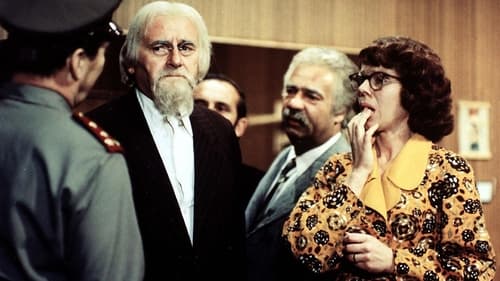
profesorův asistent Ing. Kábrt
The heroes of this absurd comedy, full of confusion and humor are Dzharda Zemanek and Frantisek Liska.
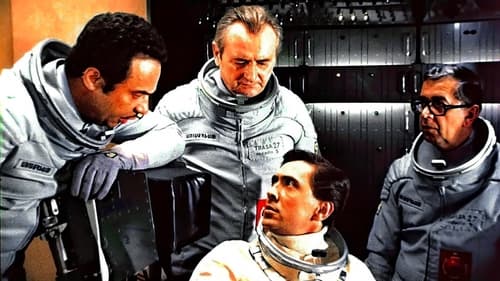
Former Nazi Klaus Abard survives to the 1990s by taking anti-ageing pills. He plans to use a time travel trip to return to Germany in 1944 and present Hitler with a hydrogen bomb, so that he can win the war. Unfortunately the pilot, woman-chasing Karel Bures, dies on the morning of the trip and his earnest twin brother Jan impersonates him, without knowing about the plot. The plot goes wrong when they lose the bomb and land near Hitler's bunker in 1941, at a time that the Nazis sense victory. Bures, with two of the plotters, escape capture by the Nazis and make it back to the time machine. Bures programs the machine to return one day before they left, because he figures he can then save his brother and foil the plot.
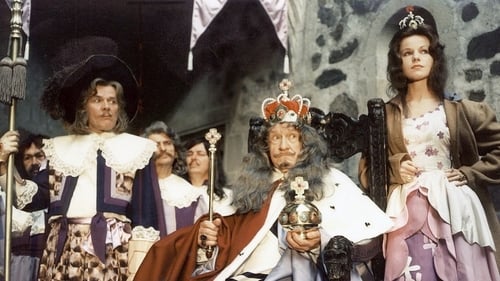
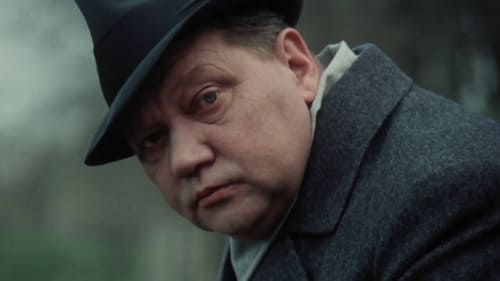
In this character study by Czech director Frantisek Vlacil, a stout middle-aged physician whose marriage has come apart establishes a practice in a small town. Gradually he's drawn into the lives of his patients—a childless couple, a pregnant girl with a stern mother, the son of a duck farmer—and each relationship reveals a bit more about him and the idyllic but insular community.

This comedy is about one average family. The father works as master in the factory and his son is studying on high school. One day father must start to visit the evening school. It's the same school as his son visiting. The lives both students are connecting together. The son must teach the math and physics his own father. The father getting to know, that the life of the students is not simple as he supposed.

It is the summer of 1968 and also in South Moravian Pálavice appear political clashes. The so far peacefully farming Unified farmers' cooperative starts splitting. Some of the farmers have found the cooperative called Vidrupa and want to deal with wine in private trade. Michal Janák, chairman of the farmers' cooperative is a deliberate man and refuses the latent return to the capitalism. As an excellent farmer he continues preparing planting out new vineyards. His adversaries do not agree - the returns will come many years later. Jozka Hrdlicka, an émigré, notices on the Austrian TV the interview with the representatives of Vidrupa and decides to visit his native village. The new suit and the hired car transform the bankrupt and criminal to the successful businessman with wine.


An only son, Jirí Valenta (Jaromír Hanzlík), has been drafted to the army. At the barracks he acquires the nickname Seamstress because he sews rugs in his spare time. One day, his friend introduces him to Julka Vávrová (Jorga Kotrbová), a girl he is desperate to get rid of. The naive Jirí falls in love with the girl and accepts her invitation to spend Easter together in the country. There he learns that the girl is the single mother of the young boy Martínek, whose father is the married tractor driver.
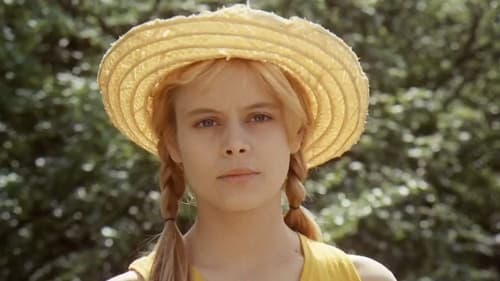
Blazenka likes to imagine she is on a desolate island and has to find a way how to survive. After the death of her mother she stays together with her baby brother and has to take care of the family. In this difficult situation, she plays this role-game that helps her to deal with the sudden loss of her mother.


It is the 1920's. The good-looking hostess Věra demonstrates household robots to visitors of the Futurum exhibition. Young inventor Petr comes to her rescue when she tries to flee from two men wanting to take her away. Věra confesses that she has fled from home because her father, a factory owner, wanted to profitably marry her off. Petr is fascinated by the emancipated woman and shows her round his laboratory, where he plans to create a robot of his own - but one that would be far more advanced. Věra cuts herself on a broken test-tube and a drop of her blood gets in the solution. In the morning, they are taken aback to see Věra's double. This lucky chance has helped Petr create an artificial being, Miss Golem. She has a single motive for her actions: to take care of Věra and allow her to do only what is good for her.

The bank officer Bedrich Hroch is sent by the bank director to the zoo, which asked an allocation of one and half kg of gold for a gold tooth for a hippo. During the check up of the hippo's teeth Bedrich is swallowed by the hippo. The man does not die in the hippo's guts and he chats quite happily with his frightened wife Dása. Journalist Pip Karen, his friend is also present to the dialogue and he has immediately an idea how to use this special situation. He tells to the new minister Borovec and his opponent professor Fibinger that there is a hippo in the zoo which can speak. He also tells them how to use this situation for a political propaganda.
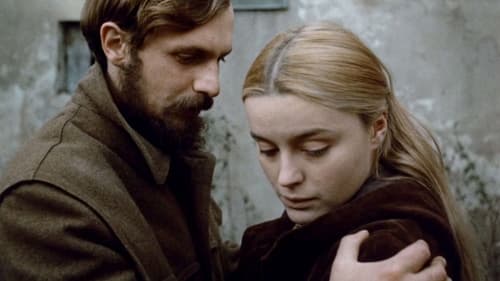
This film, chronicling the last days of Czech resistance fighter Maruska Kuderikova (played by Magda Vasaryova), is based on her diaries. Though she was tortured and eventually executed by the Nazis, her diaries indicate that she was optimistic for the humanity of her captors and did not by any means hate them. Told with simple dignity, this film makes clear why Maruska became a national hero.

The life of the famous French writer Alexander Dumas the Elder. Screenwriter Jaroslav Dietl did not hide his admiration for this literary giant, and in addition to the screenplay he also wrote a three-part TV play about Dumas (starring Vladimír Menšík). In Kachyn's film, Dumas played the father and son of the Štěpánková brothers, and it was a very difficult and difficult task for these young actors.
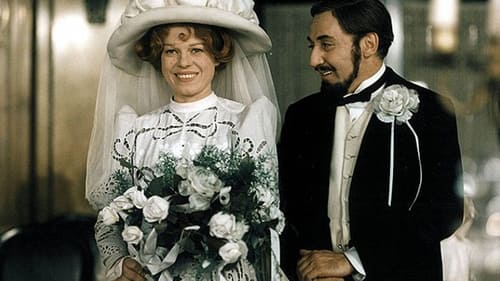
Slacker Maurice Fadinar wasted his whole inheritance and the only way out of this situation, as it seems, to marry Helen Nonankur - daughter of a wealthy farmer. At the last meeting with his mistress in a nearby forest Fadinar's horse eats straw hat which belongs to a married lady, spending time in the company of young and hot Lieutenant Emil. Emil literally puts a knife to Maurice throat - or the lady will get back the exact same hat immediately, or he will arrange such a scandal that no wedding will not happen ...

Sherlock Holmes likes to play violin and expects a great career in music. He gets a place in a spa orchestra, but he is again and again distracted by criminal cases. Therefore he is the only one who does not see that his violin has no future. He solves the criminal mysteries in passing but the final test shows that the famous detective is tone-deaf.

Sound
Art-naive gallery of craft guilds of Haban ceramics in Slovakia.

Jan Zika is the legendary hero of the communist resistance movement during World War II and leading functionary of the second underground Central Committee of the Communist Party of Czechoslovakia.
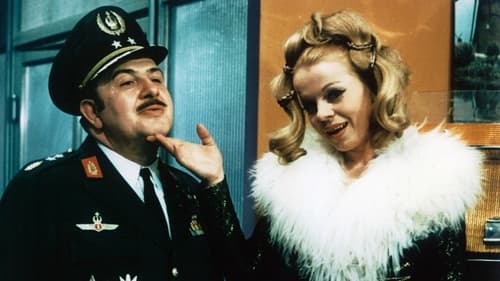
After a soldier cuts off the arm of king's cousin, king decides to deactivate the army. Of course, generals don't like it at all and they try to kill the king. The assassin should be artificial body in the shape of actress Evelina Keleti and with brain of psychotic serial killer Fany Stubová. They also manage to kill king's astrologer Stuart Hampl, who warns the king. Accidentally, Hampl's brain is implanted into assassin's body, actress Keleti is killed and chaos begins.

In the Prague Old Town and the adjoining streets there is always plenty of life. Housewives shop, beggars arouse sympathy, the Salvation Army tries to put the godless on the road to salvation by hymns and sermons, and Ferdys Pistora hunts in the pockets of his fellow men and isn't even put off by the presence of an officer of the law. Ferdys sets off to burgle villa of the banker Rosenstok, but a fire breaks out in the house and Ferdys ends up saving the banker's two small children. For this he is celebrated as a hero and gets a place as an errand boy with the Rosenstoks. At home he is visited by representatives of the Salvation Army, Captain Kosterka and Terezka, with whom Ferdys instantly falls in love.

The female employees of the poultry-processing factory find relief from their monotonous work in chatting about weddings and marriages. The very young Zdena (Marta Vancurová), too, dreams about a white veil and an entourage of bridesmaids. On her return home from work, she runs into a peculiar man on an abandoned road who pertinaciously offers to read her palm for a few crowns to buy soup. His augury is rather usual - wealth and poverty, suffering and happiness. Then however, he declares that Zdena must marry exactly on 3 November of that year otherwise she will be unhappy.
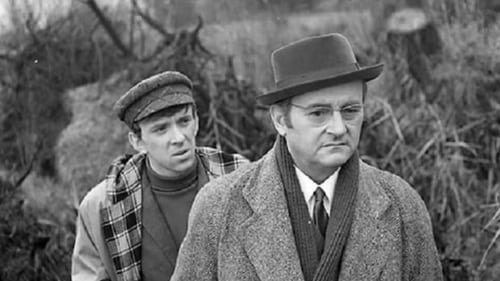
An escort composed of three people transports a huge amount of new one-hundred crown banknotes in a special railway car. At the 196th kilometer, a village girl is waiting at the railway crossing and spots two men removing some packages from the track. The scene is immediately followed by the report of a gun and the unwanted witness is shot dead. Soon afterwards, on the 201st kilometer, the train explodes. Only one of the escorts Lenk (Radoslav Brzobohatý) survives the explosion, taken to hospital with serious injuries. Criminologist Major Kalas (Jirí Sovák) and the very young Second Lieutenant Karlícek (Jaromír Hanzlík) patiently gather facts, leads and testimonies.

Ministr války
Lemuel Gulliver (Lubomír Kostelka) has had a car accident and continues his journey across the unknown countryside on foot. On the road he finds a dead rabbit dressed like a man and takes a watch from its waistcoat breast pocket. The half-ruined house that he enters reminds Lemuel of his childhood and brings up a painful memory of a dearly loved girl Markéta who was drowned years ago. Gulliver finds himself in Balnibarbi, a country where he doesn't understand the laws and habits and so continually offends against public decency. It is a day when people are ordered to keep their mouths shut and they force their visitor to follow suit. He faces harsh interrogation and finds it difficult to explain that he is not the rabbit Oscar whose watch has been found in his possession.


A ruthless inquisitor spins the superstitions of local peasants into religious heresy, finding cause to accuse dozens of innocent men and women of witchcraft. The inquisitor targets nobles and merchants, whose property and goods are then confiscated. After suffering an array of medieval tortures, most of the accused confess—only to be burned alive at the stake as helpless villagers watch. With its bold and striking cinematography, the film captures scenes of both daring nudity and brutal torture.
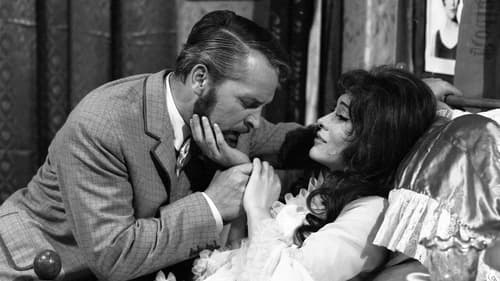

This historical film by Hynek Bočan touches upon the indecisiveness of the Czech nation, ready to bend the backbone in face of foreign rule. Situating the story at the close of the Thirty Year War enabled the depiction of the misery of the people that affects even an impoverished aristocratic milieu. Rudolf Hrušínský appears here in the role of an indecisive knight, persuaded for a long time and in vain to join the anti-Habsburg movement. The story does not only captivate through the depiction of manifold human characters, intrigues and sycophancy, but also through the circumstances ruling over the devastated farmstead, sunk in mud and crudeness. One of the best films with an updating tendency has come into being here, rightly being named along the such greats as Kladivo na čarodějnice (Witches' Hammer).

At the funeral of his schoolmate, the nearly-fifty-year old architect Jirí Mánek (Václav Voska) meets his former close acquaintance - physician Jarmila (Blanka Bohdanová). They both are still single. Jarmila has recently returned to Prague after years of work on the frontier. Jirí leaves for a business trip. As a conservationist, he is to grant permission for an adaptation of a Baroque château to office spaces. On the road, a pretty young hitchhiker named Eva (Ida Rapaicová) stops him. Eva is Slovak and her spontaneous behavior enchants Jirí. He thus does not mind making a short detour and takes Eva all the way to the luxurious cottage of her parents. A romance develops between the two people, so different in age and temperament.


At the year 1946, the time of the Nuremberg Process. One of the main actors of the Second World War, who reportedly committed suicide, Adolf Hitler is, however, missing. The Czech doctor Herman (Karel Höger) is kidnapped from Prague and driven to the sanatorium of Professor Rolf Harting (Jirí Vrstála). The sanatorium is a disguised military stronghold, most probably occupied by a Nazi garrison, with prison cells and an execution chamber in the basement. At night, Herman is taken to a patient in whom he, to his horror, recognizes Hitler (Fritz Diez).

The invincible agent Cyril Juan Borguette alias W4C has been assigned a mission to go to a hotel in Prague, get hold of a saltcellar with a plan for the military exploitation of Venus hidden in it, and hand it over to the beautiful agent Alice. He will have to compete for the saltcellar with other agents working for the world's various greater and smaller powers. The head of the Prague counter-intelligence unit gets news of agent W4C's mission. Deficient in personnel, he nominates accountant Foustka as agent 13B. Mr Foustka takes his dog Pajda with him and the two head for the airport. Pajda helps him track down agent W4C in a classy hotel that becomes the battleground for the interests and plans of the secret agents from different countries, each trying to get hold of the precious saltcellar.
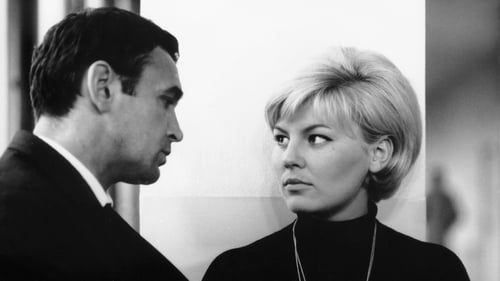
A robbery in a Prague jeweler's shop results in the shop manager Kubát and his deputy Litera being shot and wounded. The culprits take the jewelery away in a stolen car and that very night hide the loot tens of kilometers outside Prague in a forest. Then the three robbers part with each other. One of them, Burian, leaves in the same car, the other two, Duda and Hovorka, take to flight in another car, which soon ends up in a car crash. Hovorka dies in the accident, but Duda survives and hides in an abandoned cottage. Burian is arrested, Duda is traced out by a police dog. Duda confesses to the robbery to the criminologist Málek, but refuses to say where is the jewelery. The robber then begins to shoot and Málek kills him in self-defense. The court fails to prove Litera's involvement in the robbery and the only one convicted is Burian. The disappointed Málek leaves the police and begins to work as a cab driver.
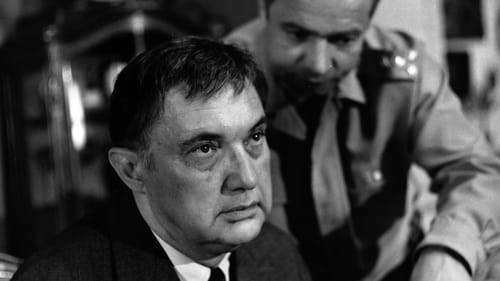
At the Ronov castle, the archive-keeper professor Nykl (Milos Nedbal) is searching for the lost painting The Naked Shepherdess by the famous Fragonard. Nykl is just about to disassemble the mantelpiece in the knight's hall, convinced that the painting must be hidden somewhere inside. His efforts, however, meet the strong disapproval of the castle manager, Anna Juzová (Jirina Petrovická), who knows very well where The Naked Shepherdess is. She wants to get hold of the painting herself, to emigrate and smuggle it along. In fact, Anna deals with forgeries of the most distinguished old masters, selling them abroad. The copies are made for her by the painter and restorer Maudr (Martin Ruzek) and the certificates of authenticity are issued by Anna's companion - expert Laburda (Karel Höger). One day, Anna is found murdered in front of the castle's fireplace.

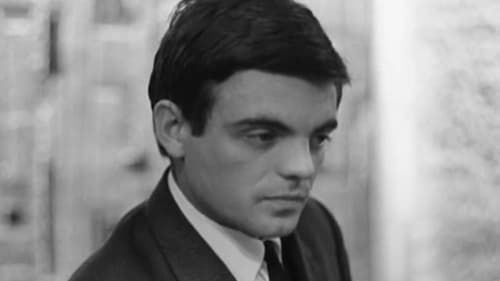
Kunert
Two female clerks using up their savings to enjoy a few days of carefree life, two plumbers looking for an erotic adventure, a building contractor determined to drink away all wages of his workers and a former major who became an alcoholic due to political persecution — these people meet in a ski resort bar somewhere in the High Tatras. During one night they gradually reveal their unfulfilled dreams, illusions and disappointments of ”average" people of those times.


host
It is the 1930s. Physician Bartos devotedly attends poor patients in the city suburbs, at the same time researching the possibilities of regeneration of human tissues after transplantation. His former colleague Rosen, now working as an assistant at the private clinic of surgeon Kirchenbruch, considers the research a mere utopia. The disappointed Bartos, trying to verify his theories, therefore accepts the outrageous proposal of Marion, owner of a brothel - to surgically replace the face of her lover, the wanted thief Cutter, with the face of murdered Father Hopsasa. Bartos is well paid but his successful operation remains a secret.


The story is about Harold, an isolated figure in an overwhelming world of totalitarian bureaucracy. Harold tries to find the elusive Joseph Kilian, an old acquaintance, in Prague. When Harold stumbles across a state-run cat-lending store, he impulsively rents a feline for the day. Later, he attempts to return the cat and finds that the store no longer exists. Now with a furry companion, Harold continues his search for Kilian. Written and directed by Pavel Juracek, this 40 minute film effectively aims its allegorical shots at personality cults and the absurdities of a totalitarian regime.

muž na poradě

Sound

Sound

Sound





























